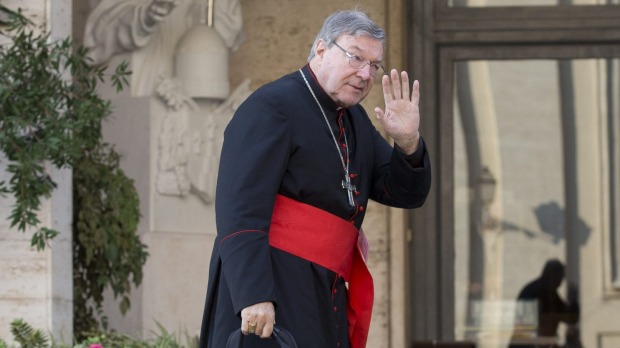Pell - a dangerous, almost psyhocpathic, individual

Cardinal George Pell is "a dangerous individual" and "almost sociopathic" in his response to child sexual abuse victims, Pope Francis' specially-appointed commissioner for the protection of children, Peter Saunders, says.
In an interview with Channel 9's 60 Minutes, Mr Saunders said Cardinal Pell had a "moral responsibility" to front the Royal Commission into Institutional Responses to Child Sexual Abuse and address allegations that he knew of priests abusing children in Ballarat and elsewhere but did nothing to stop it. Cardinal Pell has denied these accusations.
"I personally think that his position is untenable, because he has now a catalogue of denials," Mr Saunders said in the interview which aired on Sunday night. "He has a catalogue of denigrating people, of acting with callousness, cold-heartedness – almost sociopathic, I would go as far as to say – this lack of care."
Pope Francis last December appointed Mr Saunders, himself a survivor of child sexual abuse in the Catholic Church, to the new Pontifical Commission for the Protection of Minors to ensure the Catholic Church acted with greater accountability and transparency in relation to child sexual abuse.
Advertisement
"These are people who should actually be facing criminal charges now, not just sanctions at the hands of the Pope or the church or the attention of the media.
"These are people who have allegedly allowed the abuse of children to continue – sometimes for many years – and that is an unforgivable crime."